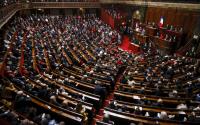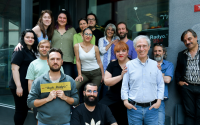12 March 2004
They believe people are more and more accustomed to seeing spring flowers at the New Year, and other signs of warm weather several weeks before usual.
Launching National Science Week, they said the premature arrival of spring displayed Nature's growing confusion.
They also urged scientists to reach out to people and invite them to discuss the issues which were worrying them.
The Woodland Trust and the British Association for the Advancement of Science are together running one project linked to the week, Spring into Science.
Midwinter visitor
This asks people across the UK to join in recording the timing of natural events, known as phenology, and has found that there are many abnormally early sightings of plants and wildlife.
"We anticipate that warming weather will bring a rapid rush of activity. Bumble bees will become much more frequent visitors to gardens."
The project says the earliest recorded sighting of a bumble bee this season was shortly before Christmas near London. In recent years, the first sightings of the insects were on average two to three weeks earlier than 25 years ago.
Future investment
Jill Attenborough told BBC News Online: "This would have been very unusual 30, 40 or 50 years ago. Now, year on year, we are beginning to accept it as the norm.
Sir David King, the government's chief scientific adviser, said National Science Week mattered: "For the sake of our future, it is important that we encourage the public to take an interest in the environment, to get outdoors and see for ourselves how nature works."
The president of the BA, Dame Julia Higgins, said: "Of course it is important that during National Science Week we inspire and entertain visitors at science events.
"But it is equally important that the scientists take this opportunity to reach out to the public and give them the opportunity to discuss the issues which affect and concern them."
http://newsvote.bbc.co.uk/mpapps/pagetools/print/news.bbc.co.uk/2/hi/science/nature/3502772.stm






